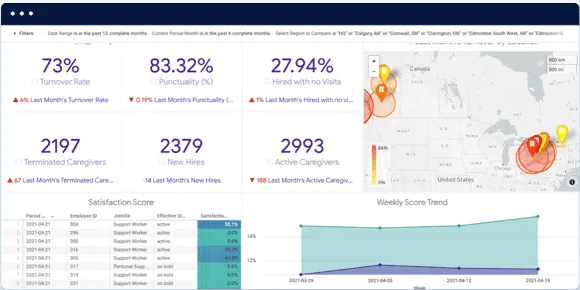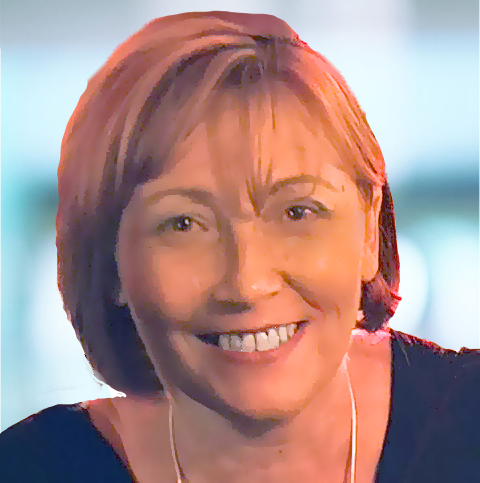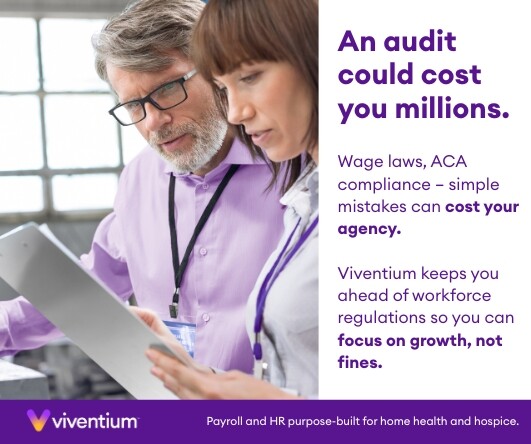Generative AI Comes to AlayaCare
by Kristin Rowan, Editor
Generative AI and Artificial Intelligence are taking the world, and the care at home industry, by storm. Not surprisingly, there are only a few companies that are doing AI well. We’ve started reviewing the best of of them. So far, each company doing AI well has a unique solution to a pain point in home care. No two companies are approaching or using AI the same way. This week, we’d like to re-introduce you to a company we’ve reviewed before that has a new Generative AI app launching soon.
History
Practically a household name in home care, AlayaCare is a 10-year-old software company that started as a mobile workforce platform. Like many of us, once Adrian Schauer, Co-Founder and CEO, spend some time in the care at home world, he was hooked. He shifted the focus of AlayaCare to the care at home space. With parents in their 80s, Adrian found a lack of inspiring software in the industry in Canada and he felt like that was an important problem to solve.
“Care workers are doing God’s work, and they are not getting the support they deserve,” says Schauer. In Canada, where AlayaCare started, agencies combine home health and supportive care. Because of this, the largest patient base on the AlayaCare platform is on the supportive care at home side, but they now operate within home health as well. Since 2021, AlayaCare has added hospice to their network with the acquisition of Delta Health.
AI Comes to AlayaCare
Through many iterations of the software, AlayaCare has advanced with new technological capabilities. Now, AlayaCare is embracing artificial intelligence; more specifically, Generative AI. Schauer explains that the purpose of their new AI technology is “to enable the type of care we want our loved ones to receive at home.”
The new GenAI app was demoed in September of 2023 and is still in Beta testing. AlayaCare is anticipating an end-of-summer launch of the product.
Introducing...Layla
Layla is an in-app digital assistant, built on top of GenAI. It’s large language model allows the user to conversationally interact with the data in the system. It also includes a constrained internet search component. From the conversation, it can determine whether the user is seeking internal or external information.
Layla’s data exploration does more than just extracting data. The GenAi platform allows Layla to provide operational support around key metrics for employee retention.

Agency Support
AlayaCare has determined some key factors in employee retention:
- Utilization
- Quality shifts
- Qualified Hours
- Recurrent shifts
- Average weekly clients
- Weekday hours vs weekend hours
Focusing on these factors, Layla provides improvements in onboarding, scripting information, data migration, and scheduler use of time.
Features
Visit Optimizer
AI generated, automated scheduler that takes into account route management, skill matching, daily hours, and schedule optimization to optimize care and reduce time from referral to first appointment.
The scheduling automation includes push notification capabilities to send schedule updates to clinicians in real time. As each week’s schedule is created, Layla can send a push notification to each clinician. It asks them to verify their availability and confirm the next week’s schedule.
Additionally, Layla considers environmental factors such as pets, neighborhoods, and other family members in the home. According to AlayaCare users, the Visit Optimizer offers up to a 98% decrease in time required to fill visits, 35% improvement in visit fulfillment, and 35% improvement in data quality.
Notable
Notable transforms notes from patient visits, forms, and client records. Then, it uses AI to review, compile, categorize, and tag all the notes.
From this information, Notable compiles an activity of daily living (ADL) for each client, including whether and why a task was completed. This information is also moved to the risk dashboard. The risk dashboard shows the whole population, the risk of that population, identifiable trends, risk level, and whether the risk has remained stable over time. All of this information is compiled into a single risk dashboard with customizable reports.
Additional security measures for Notable include a grounded model to reduce the risk of AI hallucination and ensuring no PHI leaves the dashboard.
Employee Retention Dashboard
Several factors impact employee retention. Among the top reasons for employee dissatisfaction are pay and benefits, inconsistent hours, and safety concerns. The current workforce shortage means keeping your best employees is more important than ever. With a quick snapshot of your employee satisfaction and engagement, you can address concerns earlier and improve turnover rates.
The employee retention dashboard highlights satisfaction scores, client capacity, scheduled hours, number of unique clients, overall turnover rates, turnovers by location, and more.
“Having a tool to predict employees who may be disengaged or dissatisfied prior to this happening is invaluable,” said Lee Grunberg, President & CEO, Integracare. “With the dashboard and algorithm behind it, we can see a caregivers’ satisfaction or engagement trend over time, and deploy preventative measures to reduce the likelihood that they’ll resign. It has empowered our coordinators to be much more retention-driven.”
On Deck for Layla
I spoke with Adrian Schauer, Co-founder and CEO of AlayaCare, during the online demo. “My passion project is…Layla. The people in your agency should be building relationships and making decisions. Anything else should be done by automation.”
AlayaCare is currently in a high growth mode to build marketshare across the personal care and skilled sides of the marketing. Schauer’s goal is to elevate a level above their existing capabilities with home based care providers. This includes how payers are set up, how EVV is operating, lobbying, and advocacy.
For Layla, AlayaCare is working on the GenAI capacity for chart completion by voice. Layla would use the conversational language model it already has to recognize and understand the conversation during a home visit and transcribe the conversation into notes, visit documentation, care plans, and codes.
Final Thoughts
As AI becomes more commonplace across care at home, we are scrutinizing AI platforms for safety, identity protection, accuracy, and ethical use. If you are looking for an AI solution for your business operations, we caution you to use discretion in your use of AI and thorougly vet the AI platform prior to adoption. We will continue to provide updates when Layla launches later this year. But, for now, it looks like we’ve found one more technology platform that is using AI the right way.


Kristin Rowan has been working at Healthcare at Home: The Rowan Report since 2008. She has a master’s degree in business administration and marketing and runs Girard Marketing Group, a multi-faceted boutique marketing firm specializing in event planning, sales, and marketing strategy. She has recently taken on the role of Editor of The Rowan Report and will add her voice to current Home Care topics as well as marketing tips for home care agencies. Connect with Kristin directly kristin@girardmarketinggroup.com or www.girardmarketinggroup.com
©2024 by The Rowan Report, Peoria, AZ. All rights reserved. This article originally appeared in Healthcare at Home: The Rowan Report. One copy may be printed for personal use: further reproduction by permission only. editor@therowanreport.com




